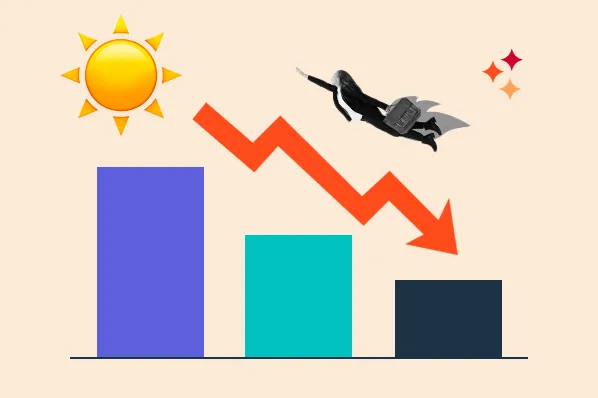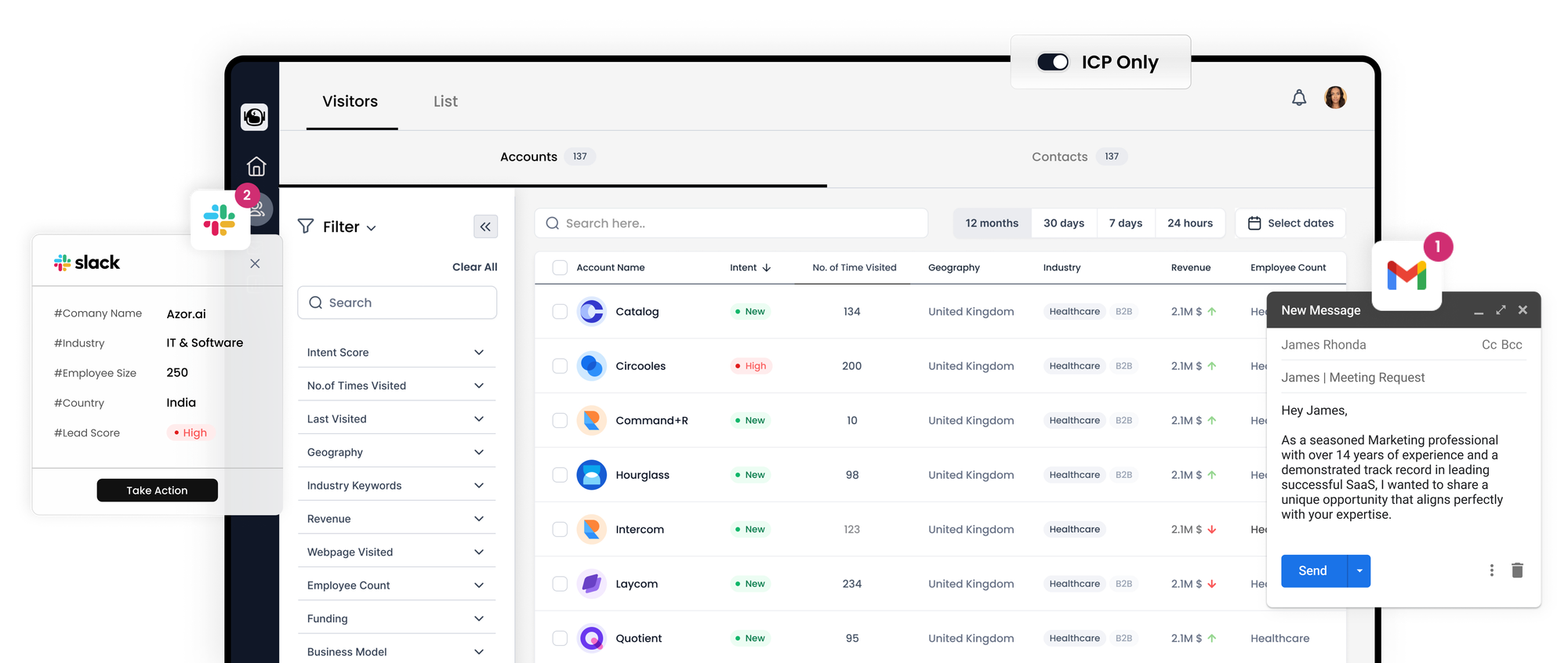A Comprehensive Guide to B2B Marketing for Growth

B2B, or business-to-business, is the sector where companies transact with each other, exchanging goods or services, as opposed to selling directly to the consumer. In this guide, you'll learn the nuances of B2B marketing and how it's leveraged to forge meaningful business relationships, drive revenue, and enhance customer experiences.
Understanding B2B Marketing
B2B marketing is the practice of one business marketing its products or services to another business. While it shares common ground with consumer-focused marketing (B2C), it has its own set of strategies and channels tailored to professional audiences. B2B marketing strategies are designed to address the specific needs and decision-making processes of businesses.

Distinguishing Between B2B and B2C Marketing
The primary distinction between B2C and B2B marketing is the target audience. B2C marketing targets individual consumers with personalized offers, whereas B2B marketing must appeal to a collective decision-making group within a business, known as the buying committee. This committee's composition varies depending on the product or service in question, demanding a nuanced approach from marketers.
Depending on the company's size and industry, B2B marketing strategies will vary. For instance, the approaches to engage small businesses will differ from those for enterprise-level corporations.
The Marketing Funnel and Lifecycle in B2B
The B2B marketing funnel depicts the journey of demand generation, starting with awareness and leading to a purchase decision. After the initial sale, the focus shifts to nurturing the relationship, aiming to convert customers into long-term advocates. Lifecycle marketing takes this concept further, engaging audiences from initial prospects to loyal advocates, fostering a cyclical relationship that brings new prospects into the funnel.
Generating and Nurturing Leads in B2B
Demand generation is all about creating content that generates interest in your offerings. Inbound marketing tactics like producing educational articles, podcasts, and videos are key here, contrasting with the direct outreach methods of outbound marketing.
Lead generation follows, capturing potential customers' information, a critical juncture where marketing and sales must collaborate closely. Account-based marketing (ABM) becomes particularly effective in B2B, targeting high-value accounts with personalized strategies.
Collaboration Between Marketing and Sales
In B2B, the synergy between marketing and sales is crucial. Together, they can create smoother customer experiences and leverage each department's unique expertise to target and nurture the most promising leads.
Evolving Landscape of B2B Marketing
Digital transformation has revolutionized B2B marketing, setting new standards for customer experiences. Businesses now must provide seamless, personalized interactions across digital channels, mirroring the high-quality experiences customers get from leading consumer brands.
Meeting the Expectations of Modern B2B Buyers
Today's B2B buyers expect personalized, connected experiences across all interactions. They seek partners who understand their unique needs and can deliver timely, relevant solutions. Marketers must adapt by utilizing data, AI, and automation tools to craft bespoke experiences for each buyer.
Employing Data and Automation in B2B Marketing
Harnessing data and integrating AI and automation are pivotal for crafting tailored buyer experiences. This tech stack enables marketers to understand accounts at a granular level, informing the creation of content and strategies that resonate with each buyer.
Strategic Content Marketing in B2B
In the digital-first world, content marketing stands out as a highly effective strategy. By delivering valuable content that establishes the business's expertise and addresses buyers' needs, content marketing can generate demand, capture leads, and support ABM efforts.
B2B marketing is a complex, multifaceted endeavor that requires a strategic approach, deep understanding of the target audience, and effective collaboration between marketing and sales. By adopting the latest technologies and data-driven strategies, B2B marketers can create compelling experiences that meet the high expectations of today's buyers and drive business growth.
SEO and Channel Optimization for B2B Content Marketing
In B2B content marketing, leveraging SEO is a strategic move to drive traffic to a company's digital properties. By optimizing content to align with prevalent search queries, businesses can improve their visibility on search engines, thereby increasing the likelihood of discovery by potential business clients.
For B2B marketing teams, it's crucial to analyze behavioral data to ascertain the most impactful channels and ideal timings for content distribution. Understanding when a potential lead checks their email or peruses social media can empower marketers to time their communications effectively for maximum engagement.
Crafting Effective B2B Messaging
In the realm of B2B marketing, timing is just as crucial as the content of the message. With the evolution of societal norms and the digital landscape, the tone of marketing has shifted from hard selling to one rooted in understanding and empathy. Successful consumer brands have set the precedent for deeply understanding customer needs and embedding that empathy into their communication. B2B marketers are now following suit, moving away from transactional interactions towards relationship-building conversations.
To infuse empathy into B2B marketing communications, teams must actively listen to and engage with buyer feedback. Monitoring social media interactions and soliciting input through surveys can offer valuable insights. This information should be shared across marketing, sales, and service departments to foster a comprehensive understanding of customers' daily challenges. By doing so, B2B marketing messages can resonate more authentically and personally with business buyers.
Harnessing Account-Based Marketing(ABM) for Focused Growth
ABM stands out as a critical strategy in B2B marketing. It's a focused approach where marketing efforts are concentrated on a selected group of high-value accounts, treating each as a unique market segment. ABM has gained considerable traction, with studies showing significant improvements in win rates and customer lifetime value.
Unlike broader marketing strategies, ABM zeroes in on establishing one-to-one relationships with key stakeholders within an account. It's not meant to replace traditional marketing but rather to complement it, becoming a potent element in a diverse strategic mix.
Achieving ABM Success
Each B2B business and buying committee is unique, necessitating a tailored approach for each high-value account. While specific strategies may vary, successful ABM initiatives typically rest on three foundational pillars:
1. Deep Buyer Understanding: Accumulate extensive data to thoroughly comprehend the buying committee within a high-value account.
2. Cross-Departmental Alignment: Ensure marketing, sales, and service teams are synchronized in their understanding and engagement strategies for high-value accounts, streamlining lead engagement, and enhancing collaboration.
3. Relationship Expansion: ABM intensifies lead nurturing efforts, emphasizing the importance of being readily available to provide information, insights, or assistance. This relationship management extends beyond the initial sale, making cross-departmental collaboration essential.
Selecting the Right B2B Marketing Technologies
In the vast landscape of over 8,000 available marketing technologies, B2B marketing teams must discern which tools best align with their company's size, industry, and growth trajectory.
Categories of Martech Tools
Martech can be broadly classified into comprehensive solutions that act as a centralized hub for customer data and specialized tools that focus on specific marketing functions.
Comprehensive Martech Solutions
- **Customer Relationship Management (CRM):** Manages all interactions and relationships with potential and current customers.
- **Content Management System (CMS):** Assists in creating and modifying digital content.
- **Customer Data Platform (CDP):** Collects, organizes, and synchronizes customer data with other systems.
Specialized Martech Tools
- **Marketing Automation:** Manages various marketing processes and campaigns across channels.
- **Marketing Analytics:** Measures the impact of marketing initiatives.
- **Email Marketing Platform:** Focuses on email campaign management.
- **Business Communication Platforms:** Facilitates efficient communication, often as a more dynamic alternative to email.
- **SEO Platforms:** Provides insights into search engine keyword data.
- **Artificial Intelligence (AI):** Delivers personalized customer experiences at scale.
- **Chatbots:** Automate customer service conversations or direct queries to appropriate personnel.
Emerging Trends in Martech
- **First-Party Cookies Transition:** With the impending phase-out of third-party tracking cookies, first-party data collection is becoming the cornerstone of digital marketing strategies.
- **AI-Powered Personalization:** AI is increasingly used to deliver individualized marketing at scale, identifying the best marketing actions for each customer.
- **Marketing and IT Synergy:** As digital experiences become the norm, CMOs and CIOs must work in concert to craft marketing strategies that resonate with digital-first buyers.
B2B marketing is experiencing a significant transformation, with customer expectations at an all-time high and digital technologies at the forefront of this shift. By carefully choosing martech tools, embracing account-based marketing, and crafting empathetic messaging, B2B marketers can create compelling campaigns that resonate with business buyers and drive sustainable growth.
